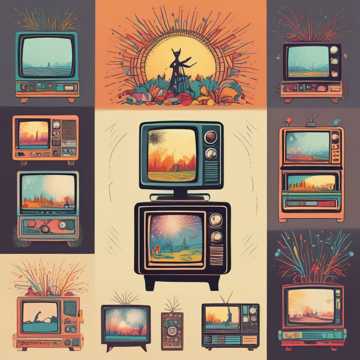On August 22, 1932, the British Broadcasting Corporation (BBC) ushered in a new age of media with its first experimental television broadcast. This pivotal moment marked the beginning of a revolution in home entertainment and information dissemination.
The Pioneering Broadcast
The historic 30-minute broadcast was a technological marvel for its time:
- Transmitted on the 30-line Baird system
- Visible to only a few dozen homes in the London area
- Featured a variety show format with songs and dances
Technical Marvels and Limitations
Early television technology was a far cry from today’s high-definition screens:
- Images were in black and white
- Picture quality was blurry by modern standards
- The screen was tiny, often just a few inches across
Despite these limitations, the broadcast was a glimpse into the future of media.
The Faces Behind the Broadcast
Key figures in this historic event included:
- John Logie Baird, the inventor of the television system used
- BBC engineers who worked tirelessly to make the broadcast possible
- The performers who appeared in this first-ever TV variety show
Impact on British Society
The 1932 broadcast, while limited in reach, had far-reaching consequences:
- Sparked public interest in television technology
- Encouraged further investment in TV development
- Positioned the BBC as a pioneer in broadcasting
From Experiment to Institution
The journey from this first broadcast to regular television service was swift:
- 1936: BBC begins the world’s first regular TV service
- 1937: Coronation of King George VI broadcast to thousands
- 1953: Queen Elizabeth II’s coronation draws millions of viewers
Legacy of the First Broadcast
Today’s multi-channel, high-definition, on-demand television landscape owes its existence to that grainy, 30-minute broadcast in 1932. It laid the foundation for:
- A new form of mass communication
- Changes in family and social dynamics
- The global spread of information and culture
Conclusion: The Birth of a Visual Age
The BBC’s first TV broadcast in 1932 was more than just a technological achievement. It was the dawn of a new era in human communication, entertainment, and information sharing. From those humble beginnings, television has grown to become one of the most influential mediums in modern society.
As we stream high-definition content on our smart TVs and mobile devices, it’s worth remembering the groundbreaking moment when a small group of visionaries in London first beamed moving images into people’s homes, forever changing the way we see the world.
Fascinated by the history of television? Share this article to celebrate the pioneers of broadcasting!


